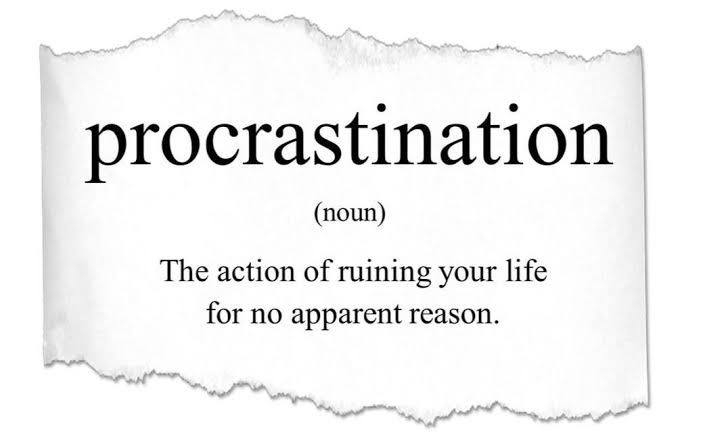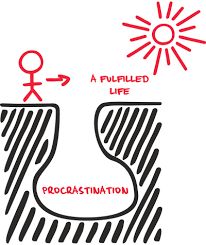Procrastination
Apr 19, 2019 • 110 views

Procrastination is a challenge we have all faced at one point or another. Human beings have been procrastinating for centuries. The ancient Greek philosophers like Socrates and Aristotle developed a word to describe this problem"AKRASIA".According to modern definition:-Procrastination is the act of delaying or postponing a task or set of tasks.
Now, why do we procrastinate??Behavioral psychology research has revealed a phenomenon called “time inconsistency,” which is responsible for our habit of procrastination. Time inconsistency refers to the tendency of the human brain to value immediate rewards more highly than future rewards. According to a psychological study and research following can be the causes of procrastination are: deep-rooted fear of failure.. A lack of focus.Habit of excessive perfectionism and even negativity and low self esteem etc leads to procrastination. An estimated 25 to 75 percent of college students procrastinate on academic work.. A 1997 survey found that procrastination was one of the top reasons why Ph.D. candidates failed to complete their dissertations.It's not just students who fall into the "I'll do it later" trap,but also the adults are in this trap.

How to stop procrastination? One of the favorite tools psychologists use to overcome procrastination is called a “commitment device.” Commitment devices can help you stop procrastinating.It's important to take mental breathers from school work every now and then. When your timer goes off, take a 10–15-minute break.First get the hard stuff done. If you really want to get something done, tell a friend or family member. When loaded with assignments, it's easy to overwork yourself. Set a timer for 60 minutes to prevent yourself from burning out.No matter how much we want to avoid it, its just our nature. Well said by a great man;Whenever there’s something that needs to be done – whether its big or small, important or irrelevant – my instinct is to “start later” or “put it off until tomorrow”.
Butaccording to Benjamin Franklin:-You may delay, but time will not, and lost time is never found again.
